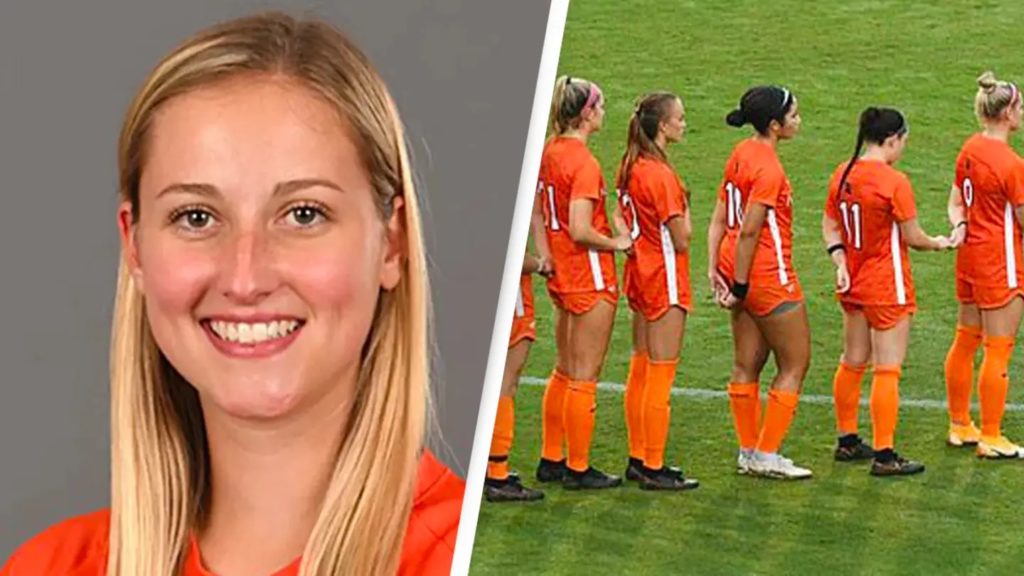Former Virginia Tech women’s soccer star sues coach for trying to make her kneel during National Anthem
A former women’s soccer star at Virginia Tech is suing her coach after she says she was forced off the team for refusing to kneel during the National Anthem.
Kiersten Hening claims her former…

A former women’s soccer star at Virginia Tech is suing her coach after she says she was forced off the team for refusing to kneel during the National Anthem.
Kiersten Hening claims her former coach, Charles “Chugger” Adair, discriminated against her political views and abused his position by limiting her time on the field, and eventually pushing her off of the team after she refused to kneel during the anthem for a “unity statement” in 2020.
Adair moved to dismiss the lawsuit, but his motion was denied.
Hening was a midfielder/defender for the Hokies from 2018 until 2020, during political tensions following the murder of George Floyd and the subsequent rise of the Black Lives Matter movement. Defying her coach, Hening chose to stand for the National Anthem, which is considered by most to be its own unifying moment.
In the lawsuit, Hening contends she firmly believes black lives do matter, but doesn’t support the BLM organization, its tactics or the tenets of its mission statement, particularly defunding the police.
Adair is accused of verbally attacking Hening during halftime following the incident, using profane language and brandishing his finger in her face. Afterward, Hening says she saw a dramatic decline in her time on the field.
Judge Thomas Cullen recently ruled Hening’s lawsuit can go forward, saying in his decision:
“Hening, who had been a major on-field contributor for two years prior to the 2020 season, also asserts that Adair removed her from the starting lineup for the next two games and drastically reduced her playing time in those games because she had engaged in this protected First Amendment activity. As a result, Hening resigned from the team after the third game of the season.”
The judge noted the steep decline in Hening’s playing time as a clear indicator of her refusal to kneel having an effect on Adair’s willingness to put her on the field.
“As a freshman, Hening averaged 76 minutes of playing time; as a sophomore, nearly 88,” Cullen wrote. “But during the Clemson game [the next game after the kneeling incident], Hening only played 29 minutes, and, at the UNC game, just 5.”
The judge ruled Hening has provided sufficient evidence to establish that Adair’s actions were motivated by Hening’s participation in protected First Amendment actions.



